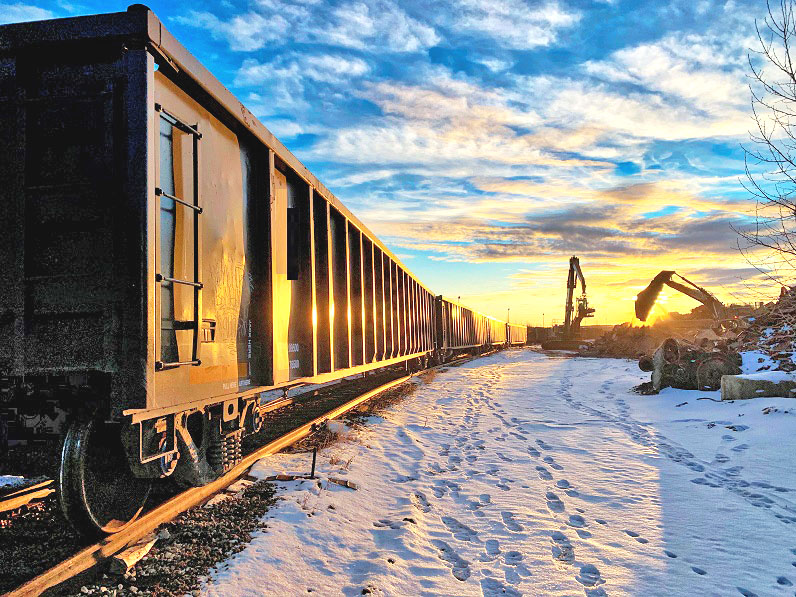Welcome Fall! With the shorter daylight hours and colder weather, we know winter is on the way! As winter approaches, many of us resort to working in the elements during the dark times of the day. It’s worth running through a checklist to be sure you’re rail – prepared for winter at every level of your organization. Read on below and contact Tealinc to further engage in your rail logistics plans.
Winter Preparation Checklist
- Lighting. Anticipate those working outside will need good lighting to complete tasks. Light up as much space as possible. Minimize shadows which can be an unseen hazard to workers. Minimize the accumulation of frost, ice, and snow.
- A Warm Space. Many outside workers spend long periods in the cold and need a place to warm up so they don’t get frostbite or other skin and lung damage. Provide a safe, warm place and establish a protocol for warmup. Establish a process for checking-ins so supervisors and coworkers are checking on each other to ensure they stay safe.
- Clothing. This may seem like a simple reminder, but I can’t tell you how many people I’ve lent gloves and hats to over the years. Be sure you have good warm coats, hats, gloves, and footwear available with easy access to and set policies to ensure employees wear them on the job to stay warm.
- Remove or clearly mark hazards. Anything that is fluid during warm months stands a chance of becoming solid during winter months. Identify water drips, leaky gutters, areas where water and snow can accumulate, and potential slick surfaces. Remedy as many of these hazards as possible before winter freeze-up.
- Lay in supplies. Take stock of your winter supplies. Anticipate the cold and provide traction products, snow and ice removal products, de-icer, sand, and other pertinent items such as fuel supplements, a good supply of #1diesel, and full propane tanks.
- Prepare equipment and access points. Inspect gates and doors to be sure they’ll function in snow and ice. Inspect snow removal equipment in advance of freeze-up to ensure it works properly and is in good condition to provide reliability over the winter.
- Have a snow removal plan. Large accumulations of snow can wreak havoc on moving around an industrial area. Have a method of removal that can easily be implemented to negate the impact of large snow accumulations.
- Prepare locomotives and switchers. At times, locomotives and switchers can spend lots of time idling in the winter. Hot-Start mechanisms that heat fluids (fuel and water) should be considered in colder climates. These allow you to turn off your locomotive, saving fuel costs when the unit isn’t actively in motion. Consider lighter weight yet diesel-grade oils in the winter.
- Track and rail infrastructure. Check crossings taking out any depressions that would accumulate snow and ice. Increasing their ability to drain will save a good deal of work. Inspect walkways for the same characteristics; do they drain well and shed snow and ice when temperatures rise? Remove debris that can accumulate from blowing snow on or near your tracks. Clear switches and track structures so they are easily operable. This will save on injuries.
Most railroads have winter preparation checklists. We encourage you to check out the links below to get you started.
Be safe this winter!
Let’s Create Value Together.
Tealinc is a railcar lessor, railcar management and consulting firm.
Contact us for an evaluation of your rail transportation situation. We’re always engaged and care about generating positive results be it a railcar lease, management of your rail assets or providing exemplary consulting results. We’re looking forward to creating true value with you!


Join the discussion One Comment